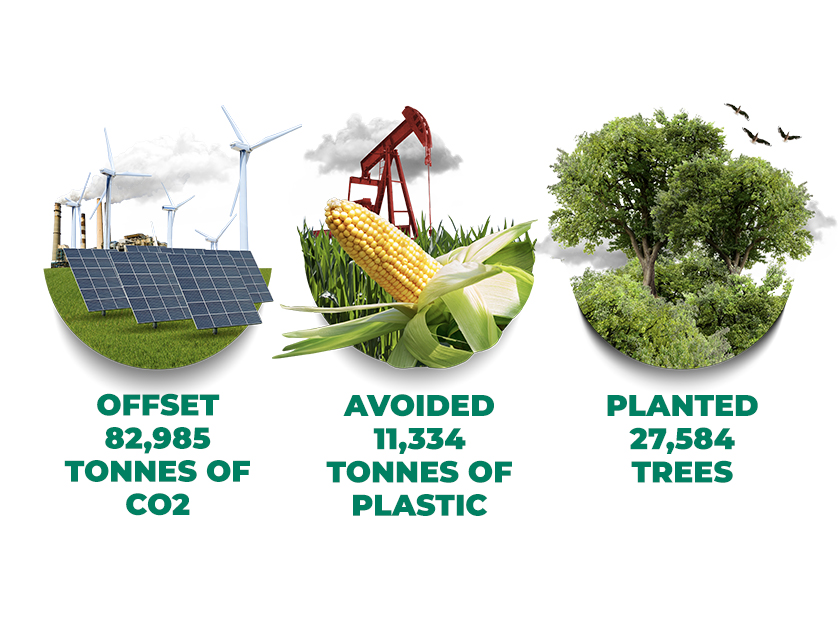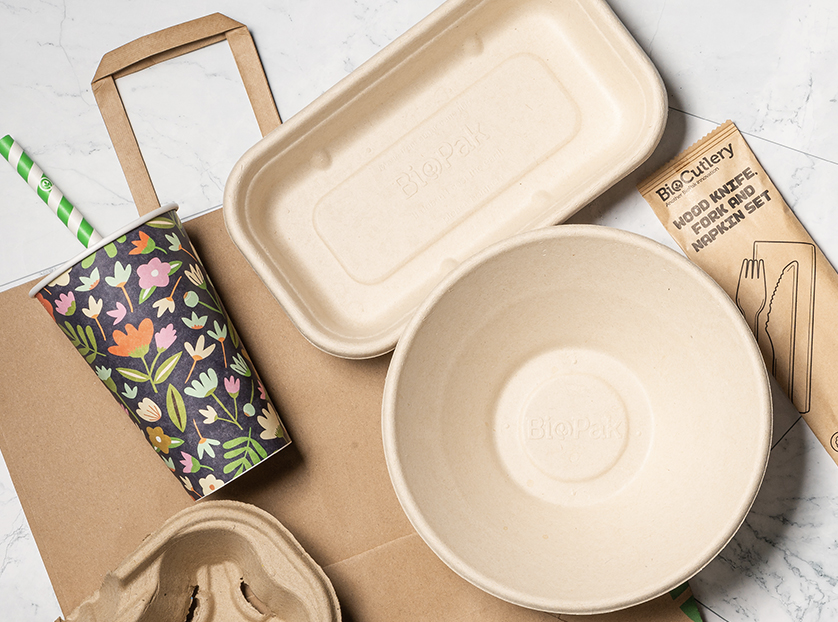While it has been a crazy year for businesses within our industry, especially suffering from the challenges and uncertainty that are part and parcel of living with the pandemic, the demand for compostable products has remained strong.
Businesses and consumers continue to say no to plastic, and a resounding yes to compostables and the transition to sustainable consumption and a circular economy.
Ultimately, it is individuals that are driving this growth. In fact, the majority (73 per cent) of global consumers say they would definitely change their consumption habits to reduce their impact on the environment.
The challenge for business is to not only respond to these trends, but to look towards the future and lead the way. Sustainable Packaging supplier BioPak saw a major shift in demand from this year, with their customer base increasing by 40 per cent.
This trend aligns with the growing awareness of the problem with plastic and the rise of the ‘conscious consumer’.
“We are focused on innovation and emerging technology to design for the future, beyond what consumers know now,” says BioPak CEO Gary Smith.
“Not only do we need to constantly seek out ways to reduce our environmental impact, we need to take responsibility for that impact at every stage in the lifecycle of our product and collaborate with industry, government, universities and research organisations in order to deliver circular and sustainable solutions.”
In January 2021, BioPak used a government grant to set up Compost Connect, a not-for-profit and brand-agnostic initiative that is linking foodservice businesses with their local compost networks in Australia and New Zealand.
“We are focused on giving our customers and the end-consumers of today and tomorrow the confidence that their choice to buy compostable packaging is making a real difference in the shift to a sustainable, waste-free world,” says Smith.
BioPak has just released their Sustainability Report for the 20/21 financial year, and together with their customers, they have avoided a total of 11,334 tonnes of plastic, offset 82,985 tonnes of carbon emissions and planted 27,584 trees.
To find out more read the BioPak Sustainability Report.


